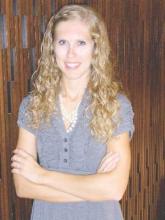It started with a dinner table conversation. Gregory Poland, MD, director of the Mayo Clinic’s Vaccine Research Group, Rochester, Minn., was talking with his daughter about the difficulties medical providers face in overcoming the fears and doubts of many vaccine-hesitant families. Presenting scientific evidence about the safety of vaccines and the risks of many preventable diseases, in many cases, didn’t budge the thinking of a hesitant parent.
Dr. Poland’s daughter, Caroline Poland, said, “Well, the way you all are going about this isn’t supported by cognitive psychology at all.” Ms. Poland, a licensed mental health and addiction counselor and director of the counseling center at Taylor University in Upland, Ind., knew that cognitive styles differ, and few people are actually swayed by analytic arguments.
Recounting this story in an interview, Dr. Poland said this was when he began to realize the impact of the fact that medicine selects for those who favor facts over emotion. Furthermore, “You get professionalized into a highly analytic way of thinking.” This realization led both participants in the conversation into an exploration of how best to communicate respectfully but effectively with those parents who are resistant or unsure about vaccine safety and effectiveness.
Dr. Poland has spoken and published about using motivational interviewing, an evidence-based model for communicating with individuals who are ambivalent or hesitant about changing health behaviors when vaccine hesitancy is encountered. He has collaborated with Ms. Poland as well, and together and separately, they are exploring new ways to achieve effective communication of medical information to patient’s parents and family members.
Ms. Poland has developed a “preferred cognitive styles and decision-making model” that takes into account how patients perceive and process information. “To help patients change, providers have to communicate in the style that’s best for them,” she said. The model posits that different individuals have different cognitive and learning styles, gives examples of patient statements that fit into the various cognitive styles, and provides guidance about effective communication that fits a given cognitive style (Vaccine. 2011 Aug 26;29[3h7]:6145-8).
In a collaboration stemming from an American Academy for Arts and Sciences (AAAS)-sponsored interdisciplinary work group exploring the problem of vaccine hesitancy, Ms. Poland has worked with an anthropologist to explore multidisciplinary approaches. “We met at this round table – anthropologists, economists, doctors, psychologists – to try to figure out how to reach these people” who are experiencing vaccine hesitancy, Ms. Poland said of her attendance at the 2013 AAAS session.
Effective motivational interviewing, said Ms. Poland, “is not a one-and-done conversation. You’re listening empathetically, having the patient voice the rationale for change.” Building mutual trust and respect can set the stage for patients’ open listening and readiness to change, she said. “When they go out into the external world and talk to others, then they’ll be able to start to verbalize the reasons” for their resistance, and why they may be ready to change a behavior.
“We don’t want to be so frantic in the moment that we lose sight of our relationship with our patients,” she said.
Dr. Poland said that access to information – and misinformation – on the Internet means that, “Patients come in with a 2-inch thick stack of Google searches,” he said. “We need to have time to talk through this with people.” Now, he said, there’s an ICD-10 code for vaccine counseling, which can be used to address the concerns and questions families bring to a clinic visit.
Ms. Poland said, “It’s easy to make this into an ‘us versus them’ issue, but it’s really more layered and nuanced than that. Everybody’s trying to make the best decision they know how. And anytime I’m feeling understood I’m more open to listening.”
Dr. Poland agreed, emphasizing that providers need ongoing support to make their communication as effective as possible. “This is not something you train providers in just once,” he said. “This is an ongoing conversation at the provider-patient level that leads to trust.”
Ms Poland said she receives research funding from Pfizer to evaluate new behavioral and educational models of vaccine decision making. Dr. Poland is the chair of a safety evaluation committee for novel investigational vaccine trials being conducted by Merck, and he offers consultative advice on vaccine development to Merck, CSL Biotherapies, Avianax, Dynavax, Novartis, Emergent BioSolutions, Adjuvance, Microdermis, Seqirus, NewLink, Protein Sciences, GlaxoSmithKline, and Sanofi Pasteur. Dr. Poland holds two patents related to vaccinia and measles peptide research.
On Twitter @karioakes



